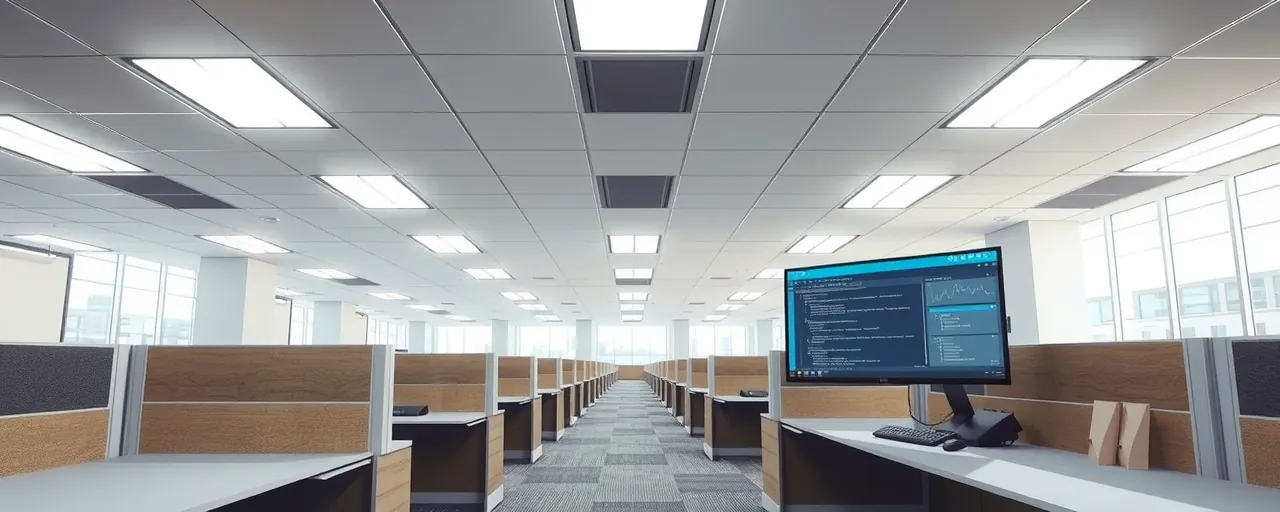A Storm Approaching Fast
A recent graduate clutches a diploma, eager to start a career in law or tech. That ambition now faces a formidable threat: artificial intelligence. Anthropic CEO Dario Amodei predicts AI could wipe out half of entry-level white-collar jobs within five years, pushing unemployment to 10–20%. This forecast demands our attention and action.
Large language models and intelligent agents are already transforming workplaces. Tasks like drafting contracts or writing code, once stepping stones for young professionals, are increasingly automated. From 2023 to 2024, major tech firms slashed new graduate hiring by 25%. These shifts reveal a future where opportunity shrinks for those just starting out.
Some voices argue AI’s impact is exaggerated, claiming new jobs will emerge to replace the losses. History shows technology can create roles, but the speed of AI’s advance leaves little room for optimism. Waiting for the market to self-correct risks abandoning millions to economic uncertainty.
Advocates for workers’ rights see a clear path forward: proactive policies to protect vulnerable employees. Leaving young professionals to navigate this upheaval alone betrays the promise of equal opportunity. Can we stand by as an entire generation’s dreams are automated away?
This moment calls for bold leadership. Policymakers, educators, and industry must collaborate to ensure AI empowers people, not replaces them. The stakes are too high to ignore.
The Data Demands Action
Research paints a sobering picture. Within five years, 40–50% of entry-level jobs in fields like finance, consulting, and technology could disappear. AI tools are already displacing junior software engineers and automating legal reviews in corporate offices. Job data highlights a sharp decline in roles tied to repetitive tasks.
Past technological shifts, from typewriters to spreadsheets, disrupted work but eventually created jobs. AI’s rapid pace sets it apart, offering workers little time to adapt. Surveys show 80% of millennials and Gen Z professionals fear AI will erode their wages and career paths, fueling widespread anxiety.
Certain Republican lawmakers prioritize innovation, resisting regulations they claim hinder progress. Their reluctance to act dismisses the human toll of automation. Protecting workers does not mean stifling technology; it means ensuring progress benefits everyone, not just tech giants.
Progressive proposals offer practical solutions. Expanded unemployment benefits, wage insurance for displaced workers, and reskilling programs inspired by Singapore’s SkillsFuture could ease the transition. An AI usage tax could fund these efforts, holding corporations accountable for their role in job losses.
Policies for a Just Transition
Comprehensive policies are essential to manage AI’s impact. Renaming Trade Adjustment Assistance as 'AI Adjustment Assistance' could provide retraining grants and income support. Independent AI impact assessments would safeguard against bias, while automation taxes could finance upskilling initiatives for millions.
The Biden administration pushed for ethical AI use, but recent rollbacks under President Trump’s second term create gaps in federal guidance. State efforts, like California’s assessment laws, show promise but lack the scope of national action. Why should protections vary by zip code?
Global coordination matters too. Unified AI regulations could prevent exploitation and promote equitable access to technology. By adopting AI transparently in public sectors, the federal government could model responsible innovation and build workforce trust.
Shaping a Future for All
The future of work depends on decisions we make now. AI may create jobs in data analysis and system oversight, but these require skills many workers don’t yet have. Without robust investments in education and lifelong learning, inequality will deepen, splitting society into digital haves and have-nots.
Mass unemployment is not inevitable. By championing workers’ rights, funding reskilling, and ensuring tech companies contribute fairly, we can build an AI economy that uplifts everyone. A society fractured by joblessness and inequity is a failure we cannot accept.
The time to act is now. For the graduate facing an uncertain future, for the professional at risk of obsolescence, and for a nation committed to justice, we must protect workers and shape a future where technology serves humanity.
